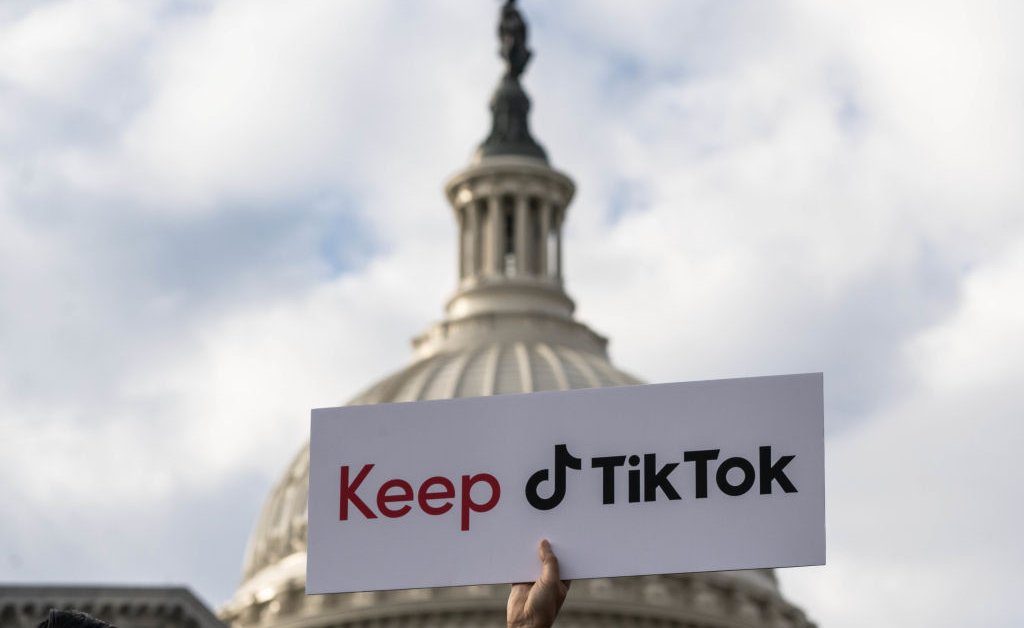A group of TikTok creators have filed a lawsuit to block a U.S. law that would force Chinese parent company ByteDance Ltd. to divest itself of the popular video app by January or face a ban. The lawsuit, filed by eight creators, challenges the ultimatum by the U.S. government meant to address national security concerns regarding data access and influence by the Chinese government. The creators include individuals from various backgrounds, such as a rancher from Texas, a college football coach in North Dakota, and a founder of a skincare line in Atlanta.
The creators argue that they rely on TikTok to express themselves, learn, and find community, and they see the ban as an attack on free speech that goes against the nation’s founding principles. Their lawyer, Ambika Kumar, stated that the lawsuit aims to vindicate the First Amendment rights not only of the creators but also of the approximately 170 million Americans who use TikTok. The Justice Department, on the other hand, looks forward to defending the law in court, stating that it addresses critical national security concerns while remaining consistent with constitutional limitations.
ByteDance, the parent company of TikTok, has stated that it does not intend to find a buyer for TikTok as the January deadline approaches. Instead, ByteDance wants the law declared unconstitutional, arguing that it violates the First Amendment and represents an illegal punishment without due process or a presidential finding that the app is a national security threat. TikTok has also expressed concerns that the law will stifle free speech and harm creators and small business owners who benefit economically from the platform.
The lawsuit filed by the TikTok creators is part of a larger legal battle surrounding the app and its potential ban in the U.S. The creators join TikTok itself in challenging the law, which they believe poses a threat to their ability to express themselves and connect with their audiences. The outcome of the lawsuit could have significant implications for the future of TikTok in the U.S. and for the broader debate around data security and free speech on social media platforms.
As the legal battle continues, it remains to be seen how the courts will ultimately rule on the constitutionality of the law and its potential impact on TikTok and its users. The case highlights the complex intersection of national security concerns, free speech rights, and economic interests in the digital age. The outcome of the lawsuit could set a precedent for how similar issues are addressed in the future, both in relation to TikTok and other social media platforms facing similar challenges.









